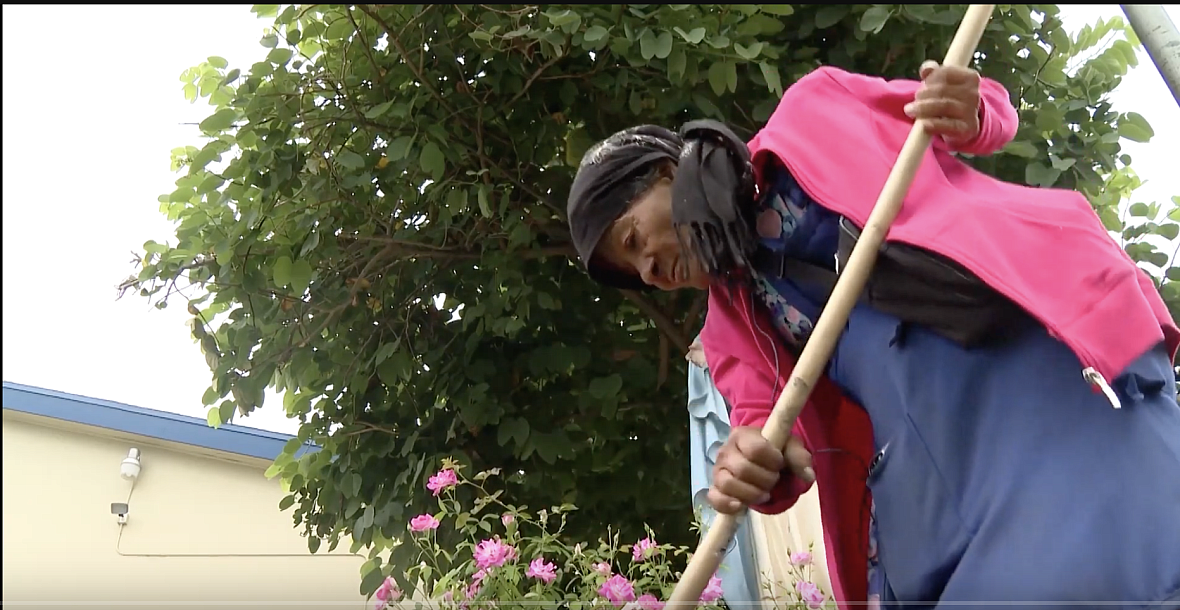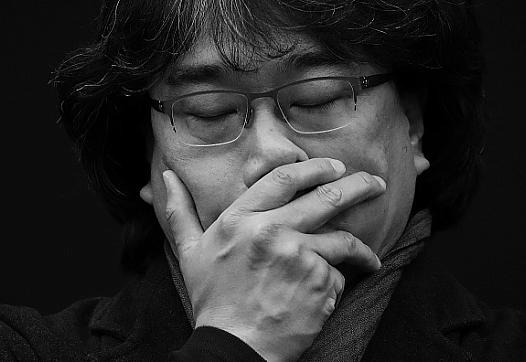Eighty-four-year-old Martha Felix Discovers Community and Belonging at Her Local Church
The story was co-published with Univision 34 Los Angeles as part of the 2024 Ethnic Media Collaborative, Healing California.

Mrs. Martha Felix volunteers her time cleaning the church
Univision 34 Los Angeles
The power of faith and a forgotten population
A call came into our newsroom. A caller told our assignment desk about a woman at Santa Elizabeth church in the San Fernando valley who faithfully dedicates herself to cleaning and caring for the church with sincere devotion and without seeking anything in return.
We went to find her… and there we found Mrs. Martha Felix… with a broom in hand.
“That’s where I sleep... That’s where I sleep with God”
This is her home.
Mrs. Martha: “I started with two [rooms]... But I couldn’t because it’s too big. Now I just clean what I can”
And at 84 years old... She doesn’t want to leave. The parish takes care of her. She sleeps here.
“I go out and see where there is trash. I clean. I go to mass”
In this parish, she has found a community that embraces her and provides the support she so desperately needs.
Mrs. Martha: “How can I not feel at home... If I enter the tabernacle... And there I feel... As I am, a daughter of God.”
And it is that... In Los Angeles, a city that never stops, there lives a population that many have forgotten: Latino seniors.
Nat sound: Martha
Dr.: “The Latino population represents almost half of the residents of Los Angeles County, within the population... The demographic that is growing the fastest is seniors, and we are living longer.”
Dr. Laura Trejo ( Los Angeles department of aging - cg only) tells us that the numbers are rising.
Between 2010 and 2020, the Latino population aged 60 and over in Los Angeles county grew by approximately 70 percent... From 298,000 to more than 507,000 (us census).
Mrs. Martha: “the only thing I lack is a place to keep my things. I have a home, I just keep my stuff organized and I live here.”
Mrs. Martha keeps her belongings in the closet… she has them with her everywhere she goes. She has two daughters. But she doesn’t want to live with them.
Mrs. Martha: “love. That is the only thing I lack... The love of my family. No one visits me. I miss them.”
Many immigrants like Martha, came to the United States with dreams of a better future, building lives and families. They have.
But today, as the world moves on around them, they often find themselves marginalized and facing loneliness.
Nat sound
In Los Angeles County, between 20% and 25% of Latino seniors live alone, which increases their economic and social challenges, as well as their vulnerability to health issues associated with isolation. (UCLA Health Policy Research Center)
Dr.: “We must be aware that we live with more health problems and economic situations that also affect their families.”
According to the CDC, the main diseases affecting seniors aged 60 and over in Los Angeles include: heart disease, type 2 diabetes, arthritis, and dementia, including Alzheimer’s.
Dr.: “For many communities, faith is one of the strongest foundations they live with.”
And it is there… where community and faith become vital elements to overcome these challenges.
Nat sound
As they do at the MAOF Center - Mexican-American opportunities foundation. Where every week, seniors gather to participate in various activities.
Nat sound
Elizabeth: "We have exercise classes, including Zumba, and activities to keep them active."
Elizabeth Jimenez from MAOF- Mexican American opportunities fund... Is the director of these programs.
Elizabeth: “"We want seniors to break out of their routine emotionally, especially when they live alone."
For many seniors like Mrs. Martha, staying connected to their community is essential, as they find in their social environment both emotional and practical support.
Mrs. Martha: “I’m feeling better these days.”
Support like the one Mrs. Martha receives from other members of the church.
Nat sound: Martha singing
While we were talking with Mrs. Martha, she received a call. It was another woman from her community, asking her with affection if she had eaten, making sure she was okay.
Nat sound: prayers
Dr.: “if a person has been a person of faith all their life... It means something important to them. It always means something.”
More than 85% of Latino seniors in the city identify as catholic or christian. Churches and community organizations have become true pillars for them.
Esmeralda sosa (archdioses): “the church recognizes the increasing needs of our elderls and is committed to providing the necessary support. They need us. Our mission is to accompany them every step of the way and strengthening their spirits”
Nat sound: prayers
Dr.: “it is unjust for an elderly person not to have the necessary health services, social support, and interaction with people. Being cooped up at home feeling alone, what sense does that make? That does not make a person happy. It does not provide a good quality of life.”
These institutions provide more than just religious services—they offer crucial emotional support, food, and medical assistance, bridging the gaps left by public systems. With a strong network of providers and volunteers, they extend guidance and help to their community members in need.
Mrs. Martha: “look right now food is raining on me.” “people give me a dollar... And with that I buy my tools. A dustpan, broom, rake. Whatever I need.”
For many, these spaces mean much more than help; they are the engine that gives them the strength to keep going and restores their will to live.
Dr.: “we need to support that a person maintains their faith and also maintains the bonds with the institutions that give them that encouragement, that make them feel good about their life, about themselves.”
The stories of Latino seniors who find support in their community networks highlight the importance of fostering these spaces, where social ties are not only strengthened but also a sense of belonging and purpose.
Elizabeth: “it’s essential for their health... It keeps them alive. It keeps them happy. With purpose, active.”
Dr. Trejo: “i tell Latino families to pay attention... That our seniors need not only our support, our help, but also the support and help of the community in which they live.”
Community and faith become refuges where prayer, companionship, and mutual service allow them to endure the passage of time with more dignity and hope.

Martha: “martha: 'i tell my children that I miss them, that I have never stopped loving them... Because my love is for a lifetime.'
This project was supported by the USC Annenberg Center for Health Journalism, and is part of "Healing California", a yearlong reporting Ethnic Media Collaborative venture with print, online and broadcast outlets across California.


